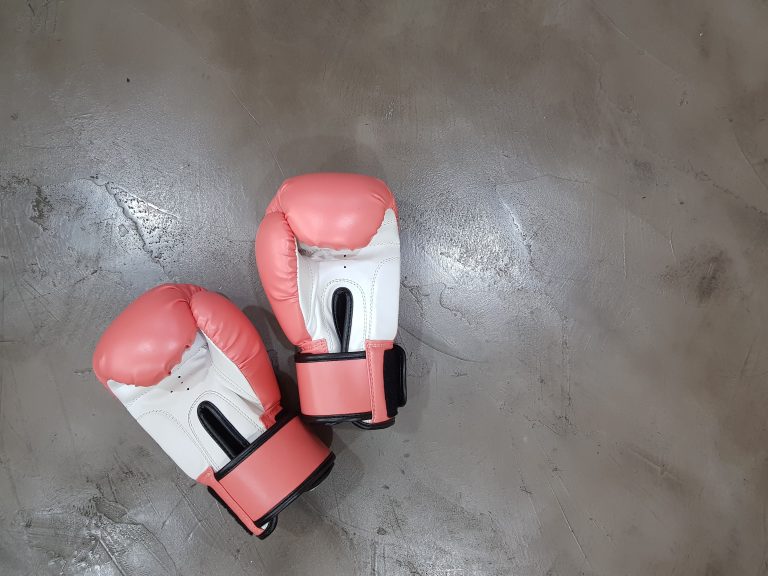Does Karate Teach You Discipline?
Karate is a popular martial art that has been practiced for centuries in many countries around the world. One of the main principles of karate is discipline, which is often described as the ability to control one’s self and follow a set of rules. But does karate actually teach you discipline, and if so, how?
What is discipline?
Discipline is the practice of training people to obey rules or a code of behavior. It is a skill that is often associated with self-control, self-discipline, and self-motivation. Discipline is a vital aspect of our lives, and it is necessary to achieve success in our personal and professional life.
How does Karate teach you discipline?
Karate is a martial art that is focused on discipline and respect. The discipline in karate is not just about learning how to fight but also about how to respect your opponents, instructors, and your own body. Below are the ways karate can teach you discipline:
1. Following a set of rules
Karate has a set of rules and regulations that must be followed by all students. These rules include wearing a uniform, bowing to your instructor and opponents, and showing respect to senior students. By following these rules, students learn to be disciplined and methodical in their approach to karate.
2. Regular practice
Karate requires regular practice to achieve success. The more you practice, the better you become. This requires discipline and dedication to attend classes and to practice on your own. Through regular practice, students develop focus and commitment to reach their goals, which also involves discipline.
3. Concentration and focus
Karate requires strong concentration and focus, which is only achieved through discipline. To successfully execute a technique, a student must focus their mind, body, and spirit. This requires concentration and is a form of self-discipline. It’s also not easy to maintain this concentration and focus, and therefore, it teaches discipline.
4. Respecting others
In karate, you learn not only to respect yourself but also to respect others. Many schools emphasize the importance of respecting your opponent and recognizing their abilities. This not only teaches students to be humble but also increases their self-discipline.
5. Goal-setting
Karate encourages setting goals and achieving them through hard work and dedication. Goal-setting and discipline go hand in hand, as it requires the ability to plan, prioritize, and put in the effort to achieve those goals.
What are the benefits of discipline?
Discipline is an essential life skill, which extends beyond karate. It can help you achieve success in many areas of your life. Some of the benefits of discipline include:
– Improved productivity and focus
– Better time-management skills
– Increased self-confidence and self-esteem
– Improved physical and mental health
– Better decision-making skills
– Greater sense of personal responsibility
Frequently Asked Questions about Whether Karate Teaches Discipline
Karate is a popular martial art that has been practiced for centuries. It is not just a form of self-defense; it also has a significant impact on an individual’s life. Many people start learning karate for self-discipline, but some may still wonder whether karate is an effective way to develop discipline. In this blog post, we will answer some of the most common questions about whether karate teaches discipline.
1. What is discipline, and how does karate teach it?
Discipline means self-control and the ability to follow rules and regulations. Karate is a martial art that requires its practitioners to be disciplined. The first step towards discipline in karate is to follow the dojo’s rules and regulations. Students are expected to be punctual, respectful towards their instructors and peers, and disciplined in their movements during training. Practicing karate also helps to develop self-discipline, as students learn to control their actions and emotions.
2. How does practicing karate improve discipline in daily life?
Karate is not just about physical training; it also has a mental and emotional component. The focus, perseverance, and self-control that is learned in karate can be applied in daily life to help individuals stay on track towards their goals. Practicing karate increases mental toughness, which is essential for staying disciplined in daily life. Additionally, karate helps individuals to develop a sense of responsibility, which encourages them to be accountable.
3. Can karate help children learn discipline?
Yes, karate is an excellent way for children to learn discipline. Children can struggle with self-control, self-confidence, and following directions. Karate teaches children how to focus and be disciplined, which can translate to success in other areas of their life. Additionally, karate helps children develop a sense of respect towards their peers and authority figures.
4. How long does it take to see results in discipline when practicing karate?
Developing discipline takes time and effort, and there is no specific time frame where you will notice significant results. With consistent practice and effort, individuals can see results in their discipline within a few weeks or months. However, becoming truly disciplined takes years of dedication to the practice of karate.
5. Can individuals with ADHD benefit from practicing karate?
Yes, individuals with ADHD can benefit from practicing karate. Learning karate requires focus, which can be challenging for individuals with ADHD. However, the structure and discipline of a karate class can help individuals with ADHD improve their focus and concentration. Practicing karate can also help individuals with ADHD develop self-control, which is essential for managing symptoms.
6. Does karate only teach physical discipline?
No, karate teaches discipline in all aspects of life. While karate requires physical discipline, such as proper movement and control, it also has a significant impact on an individual’s emotional and mental discipline. Practicing karate encourages individuals to develop discipline in their thoughts and actions towards themselves and others.
7. How does karate compare to other forms of martial arts in terms of teaching discipline?
All martial arts teach discipline, but the specific practices and philosophies of each martial art will differ. Karate focuses on developing a strong sense of self-discipline and responsibility towards oneself and others. Other martial arts may place a different emphasis on other aspects of discipline, such as humility, balance, or strategy.
Introduction
Discipline is a core component of martial arts, and Karate is no exception. While Karate is primarily known as a self-defense system, many people practice it for the various benefits it offers, including physical and mental discipline. In this post, we will explore the question „does Karate teach you discipline?“ and look at how Karate training can help you develop discipline.
Understanding Discipline
Discipline is the ability to control your behavior and follow through on commitments and goals, even in the face of difficulties. A disciplined person exhibits self-control, focus, and consistency. In martial arts, discipline covers every aspect of training, from showing up to class on time, adhering to the etiquette, and putting in the effort required to progress through belt levels.
The Role of Karate in Developing Discipline
Karate training can help you develop discipline in several ways. First, the structure of Karate classes and rank systems requires students to adhere to a strict code of conduct. This includes showing respect to your instructor and fellow students, following the rules of the dojo, and putting in the effort required to progress through the belt levels.
Second, Karate training requires dedication and commitment. It takes time and effort to master the techniques and progress through the ranks. A disciplined person is more likely to stick with their training, put in the required effort and persevere even when facing challenging situations.
Third, Karate places great emphasis on mental focus and control. Proper breathing techniques, meditation, and mindfulness are all part of Karate training. These practices help students develop mental discipline, which in turn helps them develop the ability to control their emotions and thoughts.
Steps to Develop Discipline through Karate Training
Here are some steps to help you develop discipline through Karate training:
1. Set Goals and Create a Plan
The first step to developing discipline in Karate is to set goals and create a plan to achieve them. This can include belt rank promotion goals, physical fitness goals, or anything else. Once you have set your goals, create a plan that outlines the steps you need to take to achieve them.
2. Show Up and Be Consistent
Discipline requires consistency, so make sure you show up to class regularly and put in the effort required to progress. Attend class even when you don’t feel like it or when life gets in the way. Consistency builds momentum and helps you develop the habits that will help you achieve your goals.
3. Focus on the Process
Developing discipline requires a focus on the process rather than the outcome. Rather than focusing solely on achieving your goals, focus on the daily habits, practices, and rituals that will help you get there. This mindset helps you develop the mental discipline required to stay focused on the task at hand and not get overwhelmed by the end goal.
4. Embrace Discomfort and Challenge
Discipline requires us to step outside our comfort zone and embrace discomfort and challenge. Karate training is physically and mentally demanding, and it can be challenging at times. Embrace these challenges, view them as opportunities to grow, and push through them. Overcoming challenges builds character and develops mental discipline.
5. Be Accountable and Hold Yourself to High Standards
Developing discipline means holding yourself to high standards and being accountable for your actions. This means taking responsibility for your mistakes and shortcomings and working to improve them. It also means striving for constant improvement and setting the bar high for yourself.
Conclusion
In conclusion, Karate training can help you develop discipline in various ways. The structured nature of classes, the requirement for dedication and commitment, the focus on mental control and the practices and rituals taught in Karate all contribute significantly to developing discipline. By following the steps outlined above, you can use Karate training to build a disciplined mindset and approach to life.
Inhaltsverzeichnis




